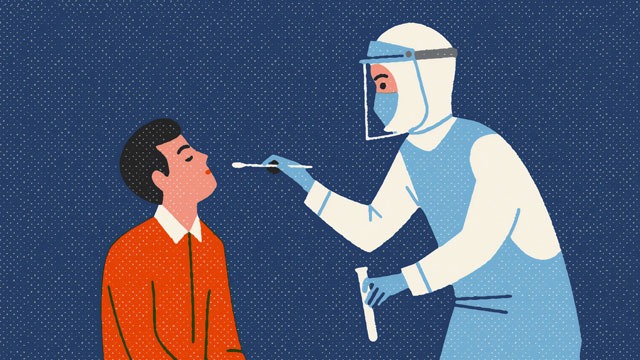How long can a Covid-19 case last? What symptoms are expected immediately after being infected with the new coronavirus?
Corona Virus: How long can Covid-19 last?
As the second wave of the coronavirus pandemic “hits” the world, it makes sense to wonder the recovery time from Covid-19. Each case is different, but after months of scientific study and data collection, experts recognize certain patterns.
When do the first symptoms of Covid-19 appear?
Not everyone who is positive for coronavirus has symptoms, with the World Health Organization (WHO) noting that 80% of infections are mild or even asymptomatic. However, some may experience fever and chills, cough, muscle or body aches, fatigue, shortness of breath or difficulty breathing, loss of taste or even smell.
Other people with Covid-19 have reported headache, sore throat, congestion or runny nose, nausea or vomiting and even diarrhea.
The US Centers for Disease Control and Prevention (CDC) reports that symptoms may appear 2-14 days after exposure to the virus. This long period of time was significantly reduced by American immunologists, who found in their study, published in the Annals of Internal Medicine , that, on average, it takes a little over five days for symptoms to appear.
The research team also found that 97% of people infected with the new coronavirus will develop symptoms within 11 days of the first infection. Any of these symptoms can occur at any time during the illness, from the first day to the last.
How long does recovery take?
The recovery period depends on the severity of the illness. If you have a mild case, you can expect to recover within about two weeks. But for more severe cases, it may take six weeks or more to feel better and you may need hospitalization, according to the researchers.
According to the US Centers for Disease Control and Prevention (CDC), older adults and people with serious underlying conditions, such as heart or lung disease or diabetes, may be at risk for more serious complications from Covid-19.
How does “viral resistance” affect recovery?
Sometimes the coronavirus seems to remain longer and scientists are still trying to understand why it occurs in some patients, how it varies from person to person and how long the virus stays alive in the body.
This phenomenon is known as “viral resistance” and affects how long a person is contagious and therefore how long they must remain isolated.
“Virus clearance is the disappearance of an infectious virus, either as a response to a therapeutic agent or as a result of the body’s immune response,” explains Charles Bailey, director of infection prevention at St. Louis Hospital. Joseph.
“This means recovery from infection and lack of continuous transmission. “On the other hand, the persistence of viruses is the continued presence of a virus, usually in specific cell types, after the symptoms of acute viral infection have resolved.”

